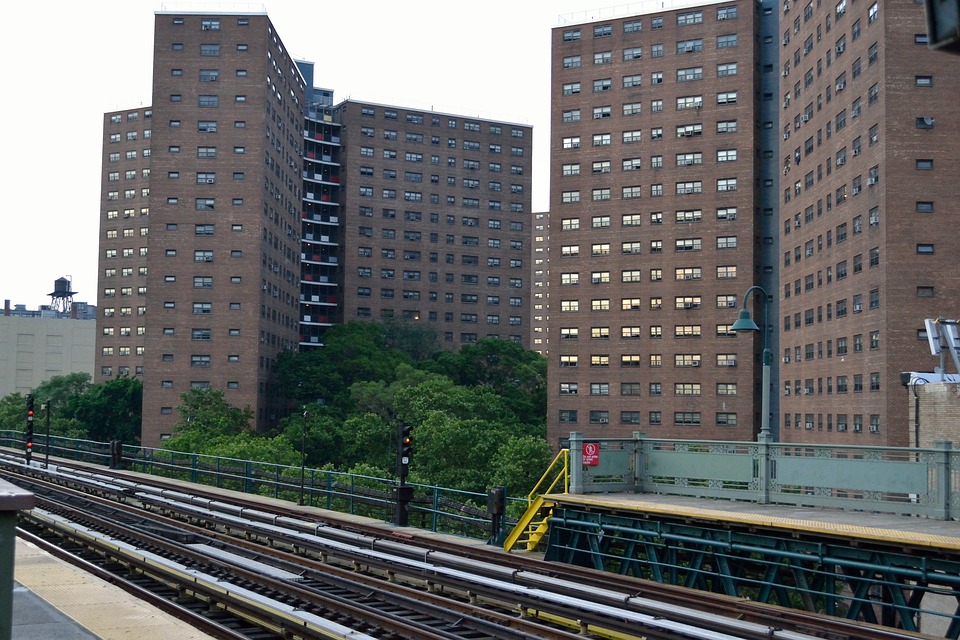Breaking the Cycle: Examining the Damaging Impact of Economic Inequality and Viable Solutions

Introduction
Welcome to our blog post on the topic of economic inequality. In this article, we will delve deep into the detrimental effects of economic inequality and explore viable solutions to break the cycle. Economic inequality refers to the unequal distribution of wealth, resources, and opportunities among individuals or groups within a society. It is a pervasive issue that has far-reaching consequences for both individuals and society as a whole. By understanding its impact and exploring potential solutions, we can work towards a more equitable and just society.
Table of Contents
Section 1: Understanding Economic Inequality
Economic inequality encompasses various aspects, including income inequality and wealth inequality. Income inequality refers to the unequal distribution of income among individuals or households, while wealth inequality looks at the unequal distribution of assets and wealth. Both forms of inequality contribute to the overall disparity in opportunities and quality of life within a society.
Subheading 1: The Impact of Economic Inequality on Health and Well-being
Economic inequality has a profound impact on the health and well-being of individuals. Studies have shown that individuals in lower income brackets are more likely to experience poor physical and mental health outcomes. Access to healthcare, nutritious food, and safe living conditions are often limited for those facing economic hardships.
Subheading 2: Educational Disparities and Economic Inequality
Economic inequality also affects educational opportunities and outcomes. Children from low-income families often lack access to quality education, which perpetuates the cycle of inequality. Limited resources and inadequate support systems hinder their academic success and future prospects.
Section 2: Consequences of Economic Inequality
Economic inequality has far-reaching consequences for individuals, communities, and society as a whole.
Subheading 1: Social and Political Instability
High levels of economic inequality can lead to social and political unrest. When a significant portion of the population feels marginalized and excluded from economic opportunities, it can result in heightened tension and civil unrest. In extreme cases, it may even lead to revolutions or uprisings.
Subheading 2: Lack of Social Mobility
Economic inequality often restricts social mobility, making it harder for individuals to move up the socioeconomic ladder. The gap between the rich and the poor becomes harder to bridge, perpetuating a cycle of poverty and limited opportunities for future generations.
Section 3: Causes of Economic Inequality
Economic inequality can be attributed to various factors, including systemic issues and individual circumstances.
Subheading 1: Structural Factors
Structural factors such as discriminatory policies, unequal access to resources, and systemic biases contribute to economic inequality. These factors are deeply rooted in societal structures and institutions, making it challenging to address without comprehensive systemic changes.
Subheading 2: Individual Circumstances
Individual circumstances, such as education level, skillset, and social connections, can also contribute to economic inequality. Those with higher education and access to valuable networks tend to have better job prospects and financial stability, while others face barriers that hinder their economic progress.
Section 4: Examining Viable Solutions
To break the cycle of economic inequality, it is essential to explore viable solutions and implement comprehensive strategies.
Subheading 1: Education and Skill Development
Investing in education and skill development programs is crucial for reducing economic inequality. Ensuring equal access to quality education and providing vocational training opportunities can equip individuals with the tools they need to succeed and overcome barriers to upward mobility.
Subheading 2: Progressive Taxation and Wealth Redistribution
Implementing progressive taxation policies, where higher income individuals and corporations contribute a larger proportion of their income or wealth, can help address economic inequality. The funds generated can be used for social welfare programs, infrastructure development, and initiatives that support marginalized communities.
Section 5: Conclusion and Call to Action
Economic inequality is a pressing issue that requires immediate attention and action. By understanding its impact and exploring viable solutions, we can work towards a more equitable and just society. It is essential for governments, policymakers, and individuals to come together and address the root causes of economic inequality, striving for a future where everyone has equal opportunities to thrive.
Frequently Asked Questions
- Q: What is economic inequality?
- A: Economic inequality refers to the unequal distribution of wealth, resources, and opportunities among individuals or groups within a society.
- Q: What are the consequences of economic inequality?
- A: Economic inequality can lead to social and political instability, lack of social mobility, and disparities in health and education.
- Q: What are some viable solutions to address economic inequality?
- A: Viable solutions include investing in education and skill development, implementing progressive taxation, and wealth redistribution.
Conclusion
Economic inequality is a complex issue with wide-ranging implications. By recognizing its damaging impact and exploring viable solutions, we can work towards creating a more just and equitable society. It is essential for individuals, communities, and governments to join forces and address the root causes of economic inequality. Only by breaking the cycle can we pave the way for a future where everyone has equal opportunities to thrive.
Show Original: https://librareview.com/breaking-the-cycle-examining-the-damaging-impact-of-economic-inequality-and-viable-solutions/
Comments
Post a Comment